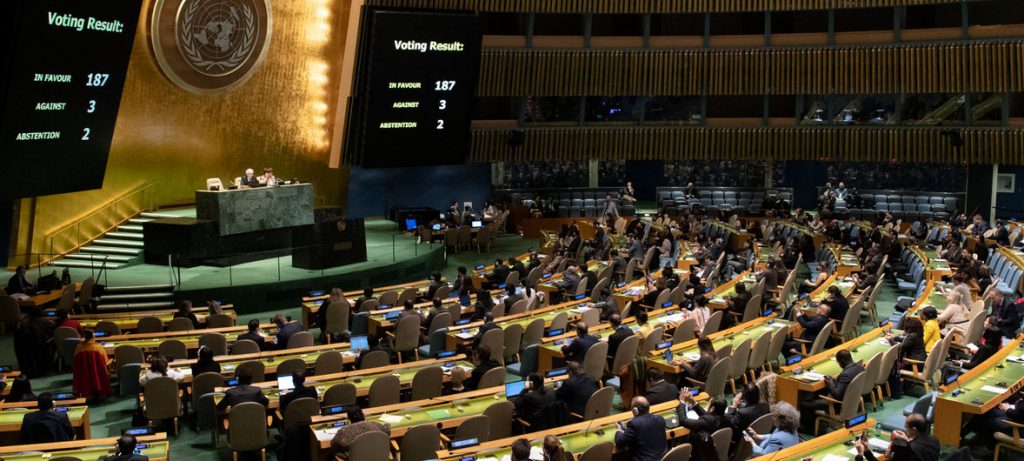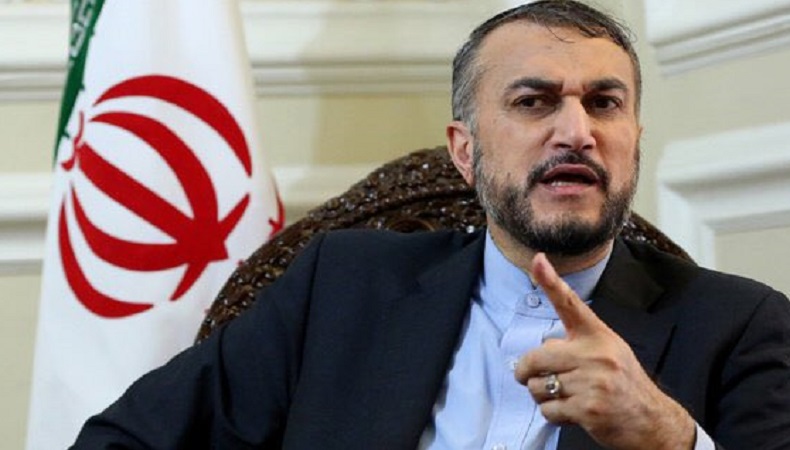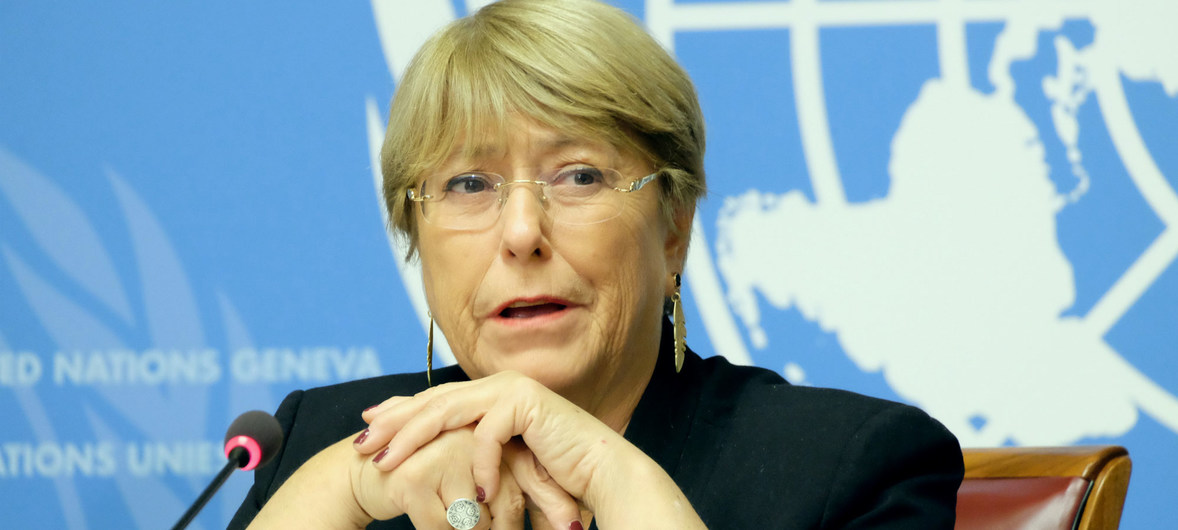Australia/Israel Review
Essay: Fighting back
Dec 17, 2021 | Anne Bayefsky

UN antisemitism in the aftermath of Durban IV
“The United Nations is a place where lies are told.” So said Daniel Patrick Moynihan on Nov. 10, 1975. As America’s ambassador to the UN, Moynihan was addressing the General Assembly after it had adopted a resolution declaring the self-determination of the Jewish people – Zionism – to be a form of racism.
Forty-six years later, on Sept. 22, 2021, the General Assembly restated that lie. This time, though, 38 countries voted with their feet and boycotted the place where lies are told. That’s more than the 35 nations that in 1975 had voted against the resolution rightly characterised by Moynihan as an “abomination of antisemitism.” It was the first major global loss for the Palestinian legal and political war on the Jewish state in a long time.
The blow was delivered at the fourth iteration of the UN’s “anti-racist” world conference, which was first convened in Durban, South Africa, in 2001. Durban IV had been carefully planned for over a year as a 20th-anniversary commemoration of what became a global antisemitic hatefest. NGO representatives and members of so-called civil society roamed the conference grounds and the streets of Durban with signs that read: “For the liberation of Quds, machine-guns based upon FAITH and ISLAM must be used,” “the martyrs’ blood irrigates the tree of revolution in Palestine,” and “down with Nazi-Israeli apartheid.”
In government backrooms, negotiators at the first Durban conference had deleted draft language from the final declaration that would have “underline[d] the role of political leaders in combating anti-Semitism” and urged states to “provide information about good practices for combating anti-Semitism.” They got rid of the call for “legal and judicial cooperation in combating anti-Semitism” and the recommendation to “take action against Holocaust denial” and promote “the study of the Holocaust.” In short, the Durban Declaration that emerged from the 2001 world conference replicated the 1975 lie and claimed that Palestinians were victims of Israeli racism. The only state the declaration specifically denounced under the UN banner of combatting racism and xenophobia was the Jewish state.
The United States and Israel walked out of the conference and, for the past 20 years, have refused to legitimise Durban and its message. The UN has done just the opposite. Successive UN high commissioners for human rights – Mary Robinson, Navi Pillay, and Michelle Bachelet – have championed Durban. Pillay, a native of Durban herself, launched Durban II and III in the form of follow-up conferences and a 10th-anniversary gala.
In the run-up to 2021, Palestinians and their UN allies believed that they had been handed a unique opportunity to reframe their cause in terms that played on perceived American bigotry. Filling the airwaves of UNWebTV came broadcasts, statements, resolutions, and reports on American racism and the alleged despoliation of the US Constitution and its national soul. In December 2020, the General Assembly decided to mark the 20th anniversary of the Durban conference and give the event the theme of “people of African descent.” Palestinian officials imaginatively rewrote their history as a tale that mirrored that of African Americans.
Durban IV took place not in South Africa but in New York and was deliberately scheduled to capitalise on the presence of hundreds of world leaders already assembled for the annual opening of the General Assembly. And so, on Sept. 22, 2021, the usual UN “General Debate” was interrupted midway for the affair.
The boycott spoiled the party. Outside the UN event, standing by Israel were the United States, the United Kingdom, Australia, Canada, New Zealand, over three-quarters of European Union states – including France and Germany – and others from Eastern Europe and Latin America.

Iranian FM Amir Hussein used Durban IV to denounce Zionism (Credit: Wikimedia Commons)
Inside, was another story. Iranian Foreign Minister Amir Hossein stated his appreciation for what he logically presumed was an invitation to promote antisemitism. He was following in the footsteps of then-President of Iran Mahmoud Ahmadinejad, who opened the “anti-racism” exercise at Durban II in 2009 by questioning the veracity of the Holocaust and decrying the “ugly faces” of Zionists. In 2021, Hossein told the Durban IV crowd: “I’m honoured to announce that my nation’s willpower is dedicated to the total elimination of all forms of racial discrimination, including apartheid and Zionism. These are crimes that constitute horrible atrocities.”
The Durban audience also heard from Palestinian foreign-affairs spokesman Riad al-Maliki, who conjured up every form of cultural appropriation and historical revisionism he could. There was Israeli “apartheid,” repeated references to “our African brothers and sisters,” and “our peoples”. He claimed that Palestinians and blacks were victims of the “same exceptionalism” and “privilege”, and concluded by “reaffirming the bond between the Palestinian and African struggles, an ongoing fight of two peoples dehumanised and relegated to inferior status in the context of racial regimes.”
No matter that Arabs in Israel – one-fifth of the population – have more democratic rights and freedoms than in any Arab state; that an Islamist party is part of Israel’s governing coalition (while banned in Egypt and Jordan); that Arabs volunteer to serve in the Israel Defence Forces, represent Israel as ambassadors, and are decision-makers on the Israeli Supreme Court. On the other hand, Palestinian leader Mahmoud Abbas has publicly stated that “in a final resolution, we would not see the presence of a single Israeli, civilian or soldier, on our lands” – in other words, a Judenrein Palestinian state not defiled by “their filthy feet”.
Because the UN broadcast the event worldwide, many observers noticed that the lies being told were not only about Jews. The opening session of Durban IV featured Saudi Arabia, which had been given the honour of speaking on behalf of the 54 states in the Asian regional group. In a country where women are chattel, the public practice of Christianity is illegal, and critics are flogged or otherwise dispatched, Saudi UN Ambassador Abdallah Al-Mouallimi said, “We reaffirm our belief, as we have always, in the importance of spreading a counsel of peace and dialogue among civilisations, highlighting tolerance and respect for diversity.”
China, now devastating a million Uyghurs, contributed this to the UN’s Durban forum: “China believes in a culture of respect, tolerance, and equality, and a social environment free from discrimination.” And Qatar (where non-citizens without political rights and few civil liberties are 90% of the population) added this to the Durban hymn book: “We aim to strengthen the values of tolerance and equality for everyone… with 1 million foreigners living with Qataris in perfect harmony.”
Durban IV’s scripted performance culminated in the General Assembly’s adoption of a “political declaration.” It reaffirmed the original Durban Declaration, demanded its “full implementation,” and called for it to be “mainstreamed” throughout the entire “United Nations system.”
Here’s what it did not do. On July 23, 2021, during negotiations, the European Union asked for a declaration that “unequivocally condemns antisemitism in all its forms and manifestations, and urges states to intensify efforts to prevent and combat antisemitism, including hate speech and violence motivated by antisemitism.” The proposal was rejected along with an EU call at the end of August for the declaration to encourage “national action plans to prevent and combat antisemitism.”
The Palestinians and South Africans evidently believed that they could spin the story and minimise any negative fallout. A week before Durban IV, on Sept. 14, 2021, the Palestinian Authority (PA) issued a statement railing against the boycott and representing themselves as torch carriers for “people of African descent.” Notwithstanding the UN’s own concerted effort to portray Durban as having “transcended divisive and intolerant approaches,” in the words of Navi Pillay, the Palestinian meltdown gave the game away. In the words of the PA: “Rooted in the valiant struggle of South Africans against apartheid, the Durban Conference serves as basis for anti-racism advocacy efforts worldwide… The Palestinian people, whose noble struggle against Israel’s apartheid continues, consider themselves an integral component in the efforts to combat all forms of systematic racism and discrimination.”
The plight of Africans enslaved in Libya, the Baha’is tortured in Iran, the Africans subjugated in Mauritania, the clans starved in Somalia, the ethnic groups slaughtered in Sudan and South Sudan, and the human beings relegated to mass graves in Ethiopia – none of them elicited a single word in eight hours of speeches about combating racism and xenophobia and peddling the Durban mantra.
Clearly, selling Durban required historical revisionism, a point exemplified by Natalia Kamen, Executive Director of the UN Population Fund. She intoned to her Durban IV listeners: “I was present in Durban to witness the power of voice, inclusion.” This was an utter falsehood, as every Jew present at the first Durban conference (myself included) could attest.
In addition to sacrificing the truth, Durban IV laid bare that combatting racism in UN circles comes with another kind of price tag. The Prime Minister of Barbados, Mia Mottley, spelled out a list of demands embedded in the implementation of the Durban Declaration: reparations in the form of “a technology transfer program”, “capital transfers”, “debt cancelations”, “a reparatory restructuring of international institutions,” a “restructure” of the “terms of international trade and the… rules of international finance and economic governance,” as well as a “transformative global development agenda.” (All of which, she assured Durban fans, “need not be contentious.”)
In thinking about Durban IV, a few conclusions suggest themselves.
First, the UN is still a place where lies are told. And it’s a place where calls for the destruction of a UN member state are answered not by cutting the mic and escorting the speaker off the premises but instead by “I thank the minister of foreign affairs of the Islamic Republic of Iran.”
Second, for the enemies of Israel who had high hopes that the 20th-anniversary celebration would fast-track Israel to political isolation and oblivion, the global gathering was instead a major setback. Not only did 38 states boycott the event, but they boycotted it specifically because the demonisation of Israel was recognised as a form of antisemitism.
Third, remember the identity of the three European nations that openly aligned themselves with the inveterate enemies of the Jewish state. Belgium, Ireland, and Portugal all spoke out in favour of the affair. Another handful of EU states – Finland, Luxembourg, and Malta – refused to boycott it.
Fourth, the Palestinian leadership has no intention of letting facts get in the way of UN fictions. After the escalation of the Palestinian-Israeli conflict in May 2021, the Palestinians manoeuvred the UN Human Rights Council into creating the mother of all anti-Israel investigations – an investigation with no equal in the history of the United Nations. The Council established “an ongoing” “commission of inquiry” aimed at Israel and tasked with uncovering “all underlying root causes of recurrent tensions, instability and protraction of conflict, including systematic discrimination and repression based on national, ethnic, racial or religious identity.” And whom did the UN select to chair this commission to ferret out the perpetrators of racial and religious discrimination in this context? None other than Navi Pillay, reigning monarch of all things Durban. This is the same woman who sat glued to her seat at Durban II, directly behind Ahmadinejad as he laid out his case for a second Holocaust. Multiple diplomats got up and walked out when they heard his words. But Pillay – who had received his speech in advance of delivery – stayed where she was.

Michelle Bachelet, the latest UN Human Rights Commissioner to champion Durban (Source: United Nations)
There’s a telling postscript to Durban IV. A mere two weeks after the event, the UN’s Israel-bashers were back in action and attempting to reverse the moral defeat imparted by the Durban boycott. The UN Human Rights Council provided the path.
Led by four co-sponsors – Cameroon (on behalf of African states), Turkey, Yemen, and Chile – the Council was presented with a resolution on combating racism, xenophobia, and related intolerance. It was irrelevant that the Islamic states of Cameroon, Turkey, and Yemen play lead roles in promoting such intolerance, including antisemitism. Chile, which is not even a member of the Human Rights Council, took its cue from its former president, Michelle Bachelet, who is the current UN High Commissioner for Human Rights, an architect of Durban IV, and a supporter of the BDS campaign to gut Jewish self-determination.
The proposed resolution warmly welcomed Durban IV and its “political declaration,” and ordered the UN Secretary-General and the High Commissioner to produce an “outreach and a public information campaign for the commemoration of the twentieth anniversary… and follow-up thereto.” In other words, the resolution was diametrically opposed to the policy decision that had been taken by the 38 states that had boycotted Durban IV.
Twelve of those 38 states were also members of the 47-seat Human Rights Council and, therefore, faced the quandary of how to vote. They were Austria, Bulgaria, the Czech Republic, Denmark, France, Germany, Italy, Netherlands, Poland, Ukraine, the United Kingdom, and Uruguay.
The resolution was cunningly crafted and ostensibly about combating racism. Opponents to it could anticipate that their objection would be framed as racist, as indeed it was. Additionally, objectors knew that they didn’t have the numbers to prevail. This is because almost all UN members avoid exposing the human rights charade in operation at the UN’s top human rights body. Some of the boycotting countries preferred to do battle on other ignominious resolutions on the Council’s agenda and worried about expending limited political capital. Opposing yet another anti-Jewish and anti-Israel UN resolution was annoying and troublesome – precisely the UN environment that antisemites can so readily manufacture.
The states that boycotted Durban IV, though, could not avoid the choice either to allow the resolution to be adopted by consensus or to “call for the vote” and demonstrate their objections. Britain stepped up and called for the vote. On Oct. 11, 2021, the final tally was 32 in favour, 10 against, and five abstentions. Accompanying their no votes, the UK (speaking also on behalf of Australia), Germany, Austria and the Czech Republic made statements in “explanation of vote” that specifically referenced the issue of antisemitism.
As with the boycott of the 20th anniversary itself, those negative votes indicated that key democracies in the United Nations understand this truth: The UN’s discriminatory treatment of Israel, and especially Durban’s racism lie, is a form of modern antisemitism. That is truly important.
Still, these states are in the UN minority. The resolution was adopted. It demands the launch of a new UN “communications strategy” to flog the Durban Declaration and all its components worldwide, making special use of “social media” and targeting “young people,” the “news media,” and “educational entities”.
Ambassador Moynihan concluded his 1975 condemnation with these words: “A great evil has been loosed upon the world. The abomination of antisemitism… Evil enough in itself, but more ominous by far is the realisation that now presses upon us – the realisation that if there were no General Assembly, this could never have happened.”
Almost a half a century later, the realisation presses upon us that if there were no General Assembly, the outrages of Durban I, II, III, and IV could never have happened. Over the course of seven decades of the violent rejection of the Jewish state, it is the United Nations that has provided Israel’s enemies with the political weaponry to avoid peace. It has promoted “Zionism is racism”, “apartheid Israel”, and Durban “victims” in order to isolate, sanction, and ultimately eliminate the Jewish state.
Ominous, but, as the boycott of Durban IV proved, the UN is not omnipotent. At the same time, it makes doing the right thing more difficult, not less. UN-driven antisemitism will not be impeded by the faint of heart.
Prof. Anne Bayefsky is the Director of the Touro Institute on Human Rights and the Holocaust, and President of Human Rights Voices. © Commentary magazine (www.commentarymagazine.com), reprinted by permission, all rights reserved.
Tags: Anti-Zionism, Antisemitism, Israel, United Nations






